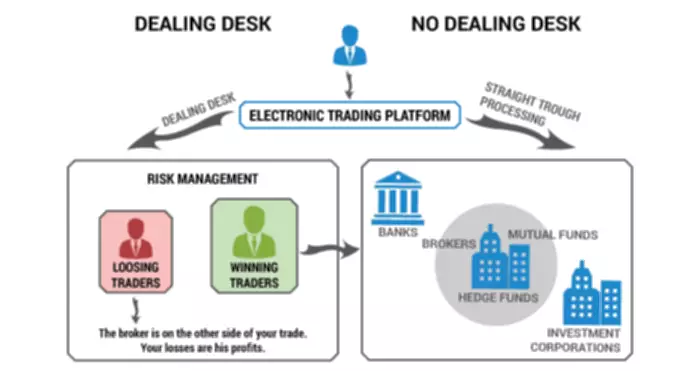By selecting the right crypto tax software, you can simplify your tax management process, reduce the risk of errors, and ensure compliance with HMRC regulations. Understanding the importance of crypto tax software is crucial for anyone who invests in cryptocurrencies. Without the right software, you run the risk of making errors in your tax calculations, which could lead to fines and penalties from the HMRC. With the increasing popularity of digital assets, the HMRC has made it mandatory for crypto investors to report their gains and losses for taxation purposes. These complicated rules were invented to stop crypto investors from manipulating their gains by selling and rebuying crypto assets to create an artificial loss. To ensure tax compliance, it’s important to understand the regulatory requirements for crypto taxes in the UK.
The best way to test crypto tax software is by getting hands-on experience with a free trial. Many providers on this list offer try-before-you-buy options or have basic plans that cost very little. In the United States, cryptocurrencies are taxed and fall under the capital and income system of taxation. It’s https://www.xcritical.in/ important to remember that crypto is not anonymous and that the IRS keeps track of crypto transactions and can audit and penalize individuals if required. While online tax software can provide an easy way to file your crypto taxes, you may want to consider hiring a CPA if you need additional assistance.

This might take anywhere from 20 seconds to 5 minutes depending on how many transactions you have. You need to first calculate the fair market value (FMV) and the cost basis of the cryptocurrency sold according to the Share Pooling method. The capital gains can then be found directly as the cost basis subtracted from the FMV. If you have made a loss, you can offset your other gains with this loss.
According to HMRC guidance, costs must be split on a ‘just and reasonable basis’. Make sure the software you choose integrates with the exchanges and wallets you use, and that the process of importing your data is simple and straightforward. The FMV of crypto rewards received will be treated as your miscellaneous income.
They also have the Know Your Customer (KYC) information you provided when signing up for any of your UK exchanges or wallets. So if you’re a basic rate taxpayer and make £15,000 in crypto profit, you’ll first need to deduct your £12,300 Capital Gains tax-free allowance. So if your crypto profits are under £12,300, you won’t need to pay Capital Gains tax or report your crypto profits. The next step is to work out the value of your crypto income at the date and time you received it. This helps to give you an accurate idea of your crypto’s value in relation to £GBP.
Airdrops are basically some free coins you received from a marketing campaign or events. If you’ve inherited crypto from someone’s estate, you’ll owe inheritance tax on sums above £325,000. As stated in their policy paper, HMRC views cryptocurrency as an asset—not as a form of currency. In this guide, we discuss how the UK treats cryptocurrencies like bitcoin from a tax perspective. If you’ve had enough of juggling spreadsheets and never finding the right invoice, your business needs Crunch’s free accounting software, whether you are a freelancer, sole trader or limited company. We are the UK’s most cost-effective online accounting service, with an award-winning Customer Service team and Chartered Certified accountants.

By the end of this article, you’ll have a clear picture of which crypto tax software is the best fit for you. Using fiat money to buy and hold cryptocurrency how to avoid crypto taxes UK is generally not taxable until the crypto is traded, spent, or sold. Traders and investors everywhere are adding cryptocurrency to their portfolios.
Cryptocurrency tax software solutions like CryptoTrader.Tax, are built to automate this tax reporting process. The UK deadline to report and pay crypto tax is midnight on 31st January. But since the reporting and payment deadline is one in the same, it’s always a good idea to report your taxes in advance. The crypto tax rate you need to pay in the form of Capital Gains Tax will depend on which Income Tax band you’re in. Once you’ve written down which crypto transactions you need to pay Capital Gains Tax on, it’s time to work out the profit. So if you earn £55,000 from regular employment and £5,000 in crypto, you’ll need to pay 40% tax on your crypto income because you’re a higher rate taxpayer.
Koinly also supports reporting for NFTs, DeFi activities like liquidity mining and pooling, yield farming, staking, airdrops and many other crypto ventures. Furthermore, HMRC has been known to request customer information from cryptocurrency exchanges. Many exchanges operating in the UK are required to comply with Know Your Customer (KYC) and Anti-Money Laundering (AML) regulations, which means they collect personal information on their users. If HMRC requests this information, the exchanges are likely to comply. The ruling has been incorporated into the UK’s VAT legislation under Schedule 9 Group 5 of the VAT Act 1994. Essentially, this means that when you buy cryptocurrencies, you are not required to pay VAT on the actual coins or tokens.
- They have invested in web scraping tools and blockchain analysis software, which can de-anonymize wallet addresses and establish connections between cryptocurrency transactions and individuals.
- Finder.com compares a wide range of products, providers and services but we don’t provide information on all available products, providers or services.
- These methods are particularly relevant for investors engaging in multiple trades involving identical assets.
- You can also test the software by taking advantage of its free plan which covers up to 25 transactions.
Calculating crypto taxes accurately is essential when diving into the crypto world. As mentioned before – every action you take in the crypto world is still taxable in the eyes of the IRS, and you should have your documents in order. They can help you cover all types of reports you might encounter along with all the tax relevant forms you might need to file or have on hand. All Accointing.com plans give you access to a crypto tracking dashboard, a crypto tax-loss harvesting tool, and a crypto tracker app. Note that of all the crypto tax products we analyzed, TurboTax Crypto is the only one that allows you to file your full tax return via the platform. If accepted, this could allow you to offset the loss against your other capital gains, effectively reducing your overall tax liability.
To use Tokentax, you’ll need to import your cryptocurrency exchange trade history, verify all your historical data and ensure that the tax calculations are accurate. After deciding on an accounting method, you can then export your tax reports and include your crypto tax on your tax return. If you don’t submit your crypto gains to HMRC, you are playing a risky game. Instead of piecing your transaction history together by hand, you can import your historical transactions from your exchanges into your crypto tax software account. Integrations with exchanges, wallets, and other crypto platforms make this a simple process.
Confirm details with the provider you’re interested in before making a decision. Crypto lending and staking is a complex area and HMRC rules are constantly evolving.
This includes also stablecoins which are treated similarly to other crypto assets for tax purposes. You can be liable for both capital gains and income tax depending on the type of cryptocurrency transaction, and your individual circumstances. For example, you might need to pay capital gains on profits from buying and selling cryptocurrency, or pay income tax on interest earned when holding crypto. Using crypto tax software will help you keep up top of the current HMRC rules and make sure you’re reporting your crypto income and capital gains correctly. Crypto tax software helps you keep a record of crypto transactions and calculates the capital gain or loss when your crypto assets are sold, exchanged, given away or traded.
